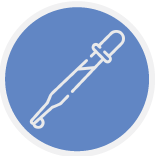Forensic engineers are trained to logically investigate and analyze data from disasters, accidents and failures, and present an unbiased assessment of what the underlying cause may have been using deductive methodologies.
The Forensic Engineering emphasis creates a unique opportunity for students to gain specialized expertise and recognition for a personal and professional commitment to enhance engineering investigation skills that will compliment design skills learned in other courses. Forensic engineers investigate accidents and failures commonly causing personal injury and/or monetary loss – the consequences of which are normally dealt with in a court of law.
Forensic engineering training goes well beyond the expert witness in the courtroom and is a part of professional engineering practice that intersects all disciplines of engineering.
Forensic engineering skills are highly valuable in the assessment of deterioration in infrastructure, product quality and procedural practice improvement as a result of investigations, direct impact on improving engineering design practices and revision of codes and standards to improve public safety.
Students who complete the requirements of the emphasis will have it notated on their transcript.
Program Eligiblity
Graduate students registered in the following MEng programs can specialize in the forensic engineering emphasis:
- Department of Chemical Engineering & Applied Chemistry (ChemE)
- Department of Civil & Mineral Engineering (CivMin)
- Department of Materials Science & Engineering (MSE)
- Department of Mechanical & Industrial Engineering (MIE)
- Institute of Biomedical Engineering (BME)
You cannot apply to the emphasis directly as a standalone program. If you are a prospective student, you can learn more about applying to our MEng programs here.
Careers
Graduates who complete the Forensic Engineering emphasis are employed by companies in areas including:
- aerospace,
- construction,
- consulting,
- environmental services,
- forensics
- manufacturing,
- transportation
and more.
Some of the first roles our graduates secure are:
- Manager
- Materials manager
- Metallurgist
- Railyway systems engineer
- Safety engineer

The MEng with Forensic Engineering emphasis is not just giving me unique practical skills; it's also giving me a competitive edge in the job market. It's preparing me for specialized roles where the legal system and engineering intersect, setting me up for my dream career. The highlight of my studies at U of T have been the hands-on projects in the forensic engineering and aircraft investigation courses. These experiences have been incredibly engaging and insightful.
Ann Maria Pius, BME MEng student
Emphasis Requirements
MEng students can earn an emphasis in Forensic Engineering by completing four courses, including one core course and three elective courses.
Some courses may satisfy the requirements of multiple emphases. Students may double-count a maximum of one course towards the requirements of any two emphases.
Students cannot earn more than two emphases.
Core Course
- MSE1031H: Forensic Engineering
Elective Courses
- AER 1604H: Air Accident Investigation
- APS 1034H: Making Sense of Accidents
- APS 1039H: Enterprise Risk Management
- APS 1040H: Quality Control for Engineering Management
- APS 1101H: System Dynamic Risk Management
- BME 1800H: Biomedical Product Development I
- BME 1801H: Biomedical Product Development II
- BME 1802H: Applying Human Factors to the Design of Medical Devices
- BME 1480H: Experimental Design & Multivariate Analysis
- CHE 561H: Risk Based Safety Management
- CHE 568H: Nuclear Engineering
- CHE 1213H: Corrosion
- CHE 1431H: Environmental Auditing
- CHE 1432H: Technical Aspects of Environmental Regulations
- CHE 1434H: Six Sigma for Chemical Processes
- CHE 1436: Risk Assessment for Chemical Process and Safety
- CIV 510H: Solid Mechanics II
- CIV 518H: Behaviour and Design of Steel Structures
- CIV 1163H: Mechanics of Reinforced Concrete
- CIV 1171H: Principles of Earthquake Engineering and Seismic Design
- CIV 1174H: Finite Element Methods in Structural Mechanics
- CIV 1190H: Structures Under Blast and Impact
- CIV 1201H: Concrete Technology and Non-Destructive Testing Principles
- CIV 1279H: Construction Contract Documents
- CIV 1282H: Case Studies in Building Science
- CIV 1422H: Dynamic Response of Engineering Materials
- CIV 1429H: Advanced Rock Engineering: Fractured Rock Masses
- JMB 1050H: Biological & Bio-Inspired Materials
- JNC 2503H: Environmental Pathways
- MSE 1015H: Mechanical Properties of Solids I
- MSE 1016H: Mechanical Properties of Solids II
- MSE 1022H: Materials Issues & Application of Advanced Materials in Nuclear Systems
- MSE 1032H: Atomistic Modelling of Materials
- MSE 1067: Materials Failure
- MIE 507H: Heating, Ventilating, and Air Conditioning (HVAC) Fundamentals (formerly MIE1224H)
- MIE 533H: Waves and Their Applications in Non-Destructive Testing and Imaging
- MIE 566H: Decision Analysis
- MIE 1301H: Solid Mechanics
- MIE 1303H: Fracture Mechanics
- MIE 1411H: Design of Work Places (exclusion MIE343)
- MIE 1414H: Human Factors in Transportation
- MIE 1514H: Systems Design and Engineering: A Product Perspective
- MIE 1616H: Research Topics in Healthcare Engineering
- MIE 1708H: Collision Reconstruction
- MIE 1713H: Analysis and Design of Joints in Manufactured Products
- MIE 1714H: Failure Analysis
- MIE 1721H: Reliability
- MIE 1723H: Engineering Maintenance Management
- MIE 1727H: Statistical Methods of Quality Control
- MIE 1804H: The Finite Element Method in Mechanical Engineering
Questions?
If you have questions about the Forensic Engineering emphasis please contact the Department of Materials Science & Engineering:
Email: materials.engineering@utoronto.ca
Tel: 416-978-3012
For more information, visit the MEng emphases FAQ page »











